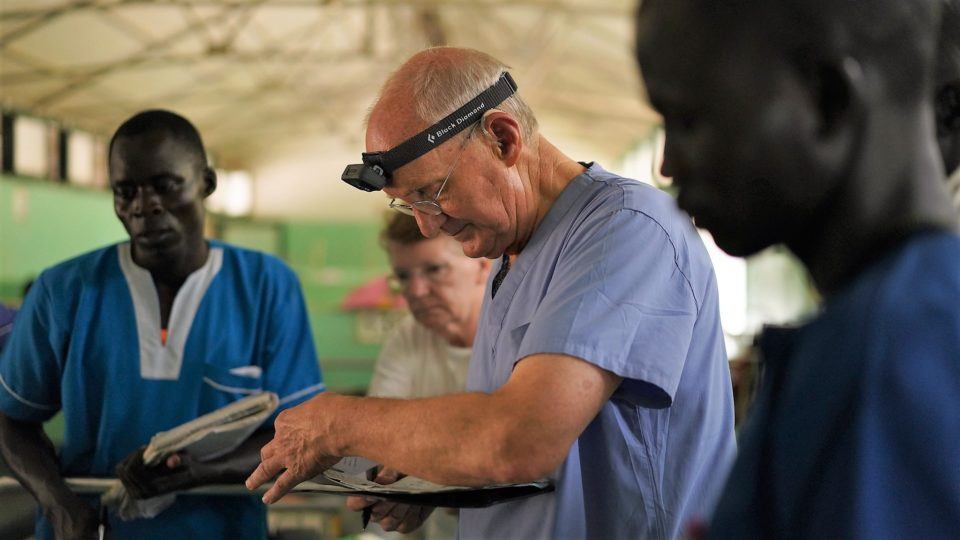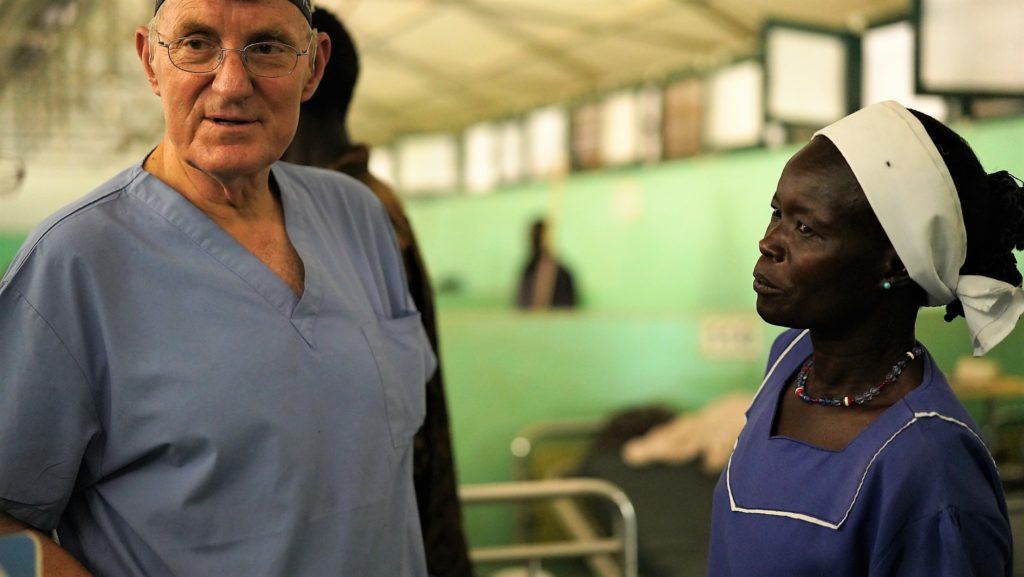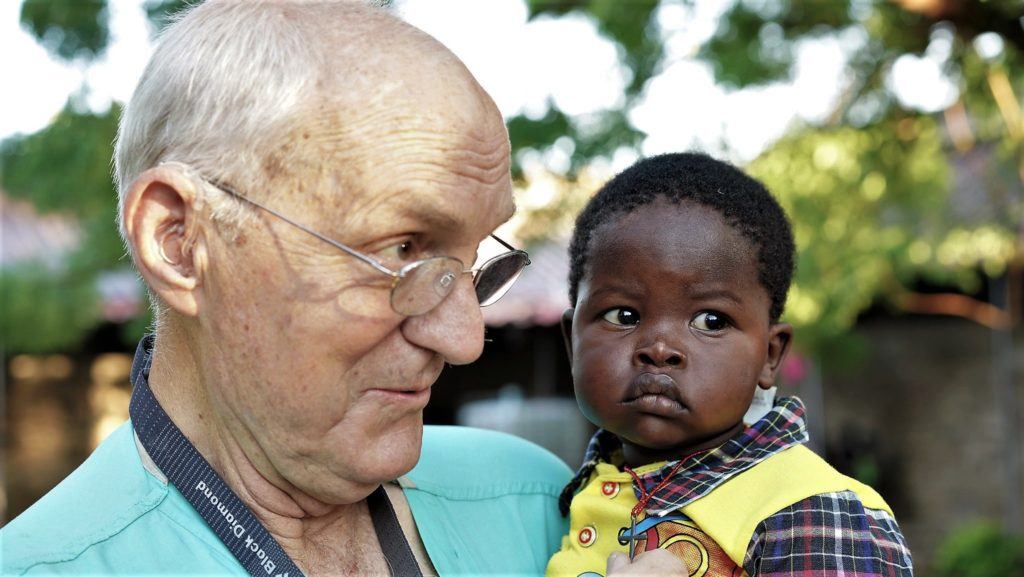“When Are You Going to Start Giving Back?”

Dr. James Peck (Dr. Jim) is a general surgeon and adjunct professor of surgery at Oregon Health and Science University with over 20 years of clinical experience. He also happens to be one of our favorite humanitarians. For the past few years, Dr. Peck has traveled to the Nuba Mountains in Sudan – one of the most remote and poor places on the planet – to fill in for Dr. Tom Catena, at the Mother of Mercy Hospital.
Dr. Jim remembers when he was asked by his Aunt Mavis, “When are you going to start giving back?” This spotlight highlights how he replied.
Meet Dr. James Peck
What inspired you to begin mission work?
I was lucky to have strong role models in my life. My father was a general practitioner, and he volunteered his services to orphanages at the San Diego Mission and in Tijuana. During World War II there were a lot of children that were left as orphans in San Diego.
Another role model was my Aunt Mavis. She spent some time working for Mother Teresa, and she actually once walked with Mother Teresa from Los Angeles to Tijuana for a fundraiser. She was a remarkable person. My father and mother unfortunately died very young, so Mavis became a huge influence in my life.
I remember I had not just begun my surgical internships, when my Aunt Mavis started asking me, “When are you going to start giving back?” I would say “Aunt Mavis, I’m working with indigent patients at a county hospital, I’ve got four kids and I need to get them educated. But, once I get that done I will start giving back”. And, just as I told my Aunt Mavis, when my last child was done with schooling, I went to Liberia in 2002 during their civil war.
Overall, I appreciate how grateful all the patients I work with are. I witness the good we can do. So, that continues to inspire me to do mission work.
How have your mission experiences changed you?
I figure, just like Tom says – I’ve been given a skill, and I should be able to use it for others. It is true, that my life is very easy in Portland. I have been fortunate to be successful as a surgeon, so I could easily spend my time vacationing with my wife, or seeing my grandchildren. But, witnessing what the real world looks like is something I find very important. I’ve actually brought my two oldest grandchildren to Africa. I wanted them to see what most of the world lives like. Two-thirds of the world live under the poverty line, and I want them to know that the way we live is not the norm. In the scope of the entire world, it’s the exception. We live in “Disneyland” by comparison.
I think initially, one of the things that changes you, is your return home. When you return, you have what is called “reverse culture shock.” You can’t put up with anyone complaining because everyone you see has so much. Even when you do simple things like listen to the radio – you hear all the complaining. You realize how unwarranted so many of our complaints are. In the Nuba Mountains, have so little, but they are so joyful for what they have.
In a way, it makes you appreciate how wonderful these Nuba people really are. You come to understand how much energy they need to just survive. I just appreciate them, and I’m always a much better person when I return from a mission. I come home humbled.


